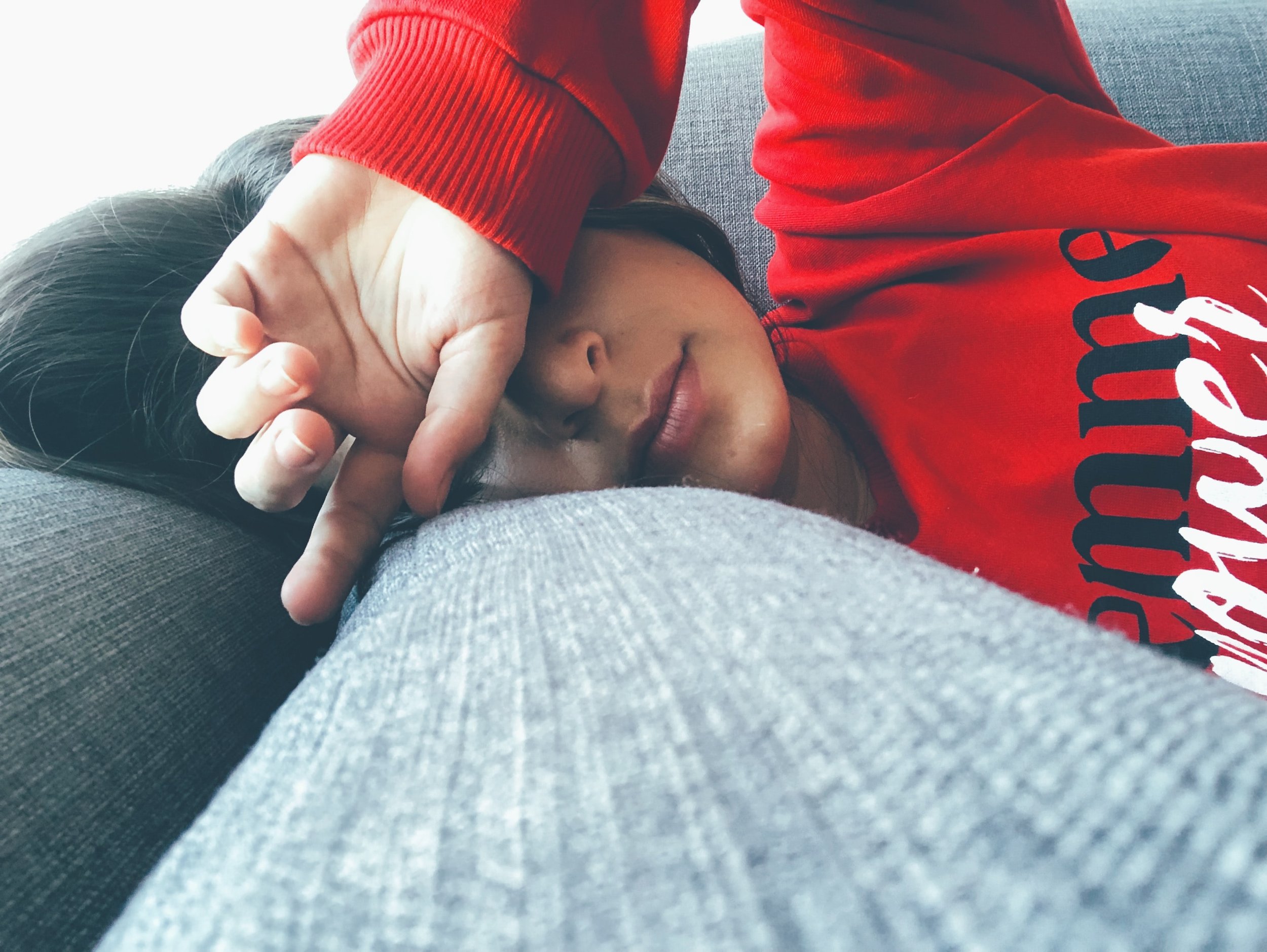
Fatigue & Menopause
Perimenopause fatigue is often referred to as ‘crushing’. It’s a feeling of overwhelming tiredness, something akin to how you feel when coming down with a virus - a feeling of being totally drained, unable to concentrate or keep your eyes open. Menopause fatigue is a symptom that doesn’t improve with sleep and is especially problematic in the workplace.
Does perimenopause fatigue impact mental health?
You’d better believe it!
Fatigue that can come with perimenopause can be extreme exhaustion that affects your mood, well-being, and ability to concentrate. Unluckily, in a quirk of timing, perimenopause also arrives at a time when women couldn’t be busier, caring for family members – older & younger - and continuing to work whilst going through what can be a major change, no surprise that menopause exhaustion kicks in.
It’s extra tough when you deal with the knock-on effects of fatigue - difficulties concentrating, recall, mood swings, and it impacts your performance at work. How likely is it that an employer will link your menopause with work performance? To read more on how to approach this specific issue in the office, read our Complete Guide to Menopause in the Workplace.
Is perimenopause fatigue normal?
Yes! Depleting oestrogen levels impact both your sleep cycle and the quality of your much-needed shut-eye. Oestrogen regulates (limits!) the production of the hormone cortisol; when levels drop, cortisol production increases, causing adrenal fatigue and anxiety. As a result, perimenopause extreme fatigue, you don’t feel refreshed or rested when you wake up and this persists throughout the day.
Sleep quality can take a hit in menopause. Women who have previously slept soundly may notice a change in sleep habits, and difficulties falling asleep or staying asleep. When stress, insomnia, (a symptom in its own right), and night sweats, alongside a constant sense of dread and anxiety experienced by some perimenopausal and menopausal women, are added to the mix, it can become a fairly toxic fatigue cocktail.
Managing menopause fatigue
It may seem counterintuitive and probably the last thing you want to do when you feel exhausted but moving more helps. Managing stress, prioritising sleep, and cutting back or cutting out stimulants and alcohol can also improve fatigue. You know your body and if this feels like other-level fatigue, talk to your doctor to rule out underlying causes. HRT may help to improve sleep quality and energy levels as it tops up those hormone levels that have dropped off in perimenopause.
How long does menopausal fatigue last?
Fatigue may continue for the duration of your symptoms. Introducing lifestyle changes may help lessen fatigue and improve some of the symptoms contributing to it. Take a look at what we say may help you to deal with your menopause fatigue.
Women who have previously slept soundly may now notice a change in sleep habits. Add stress, insomnia, and night sweats, alongside a constant sense of dread and anxiety experienced by some perimenopausal and menopausal women, and it becomes a fairly toxic fatigue cocktail.
Be Proactive
Think about your diet. Take a good look at your lifestyle. How do you deal with stress? The results of this self-scrutiny exercise will draw up your menopause management roadmap.
What triggers perimenopause exhaustion?
Foods to skip
Is menopause making you feel tired all the time? Avoid sugary snacks and drinks - processed foods can trigger many perimenopausal symptoms, most ready meals, cakes and biscuits and pre-cooked meats are full of sugar, preservatives, salt and other additives that may slow you down. So resist the devil on your shoulder telling you that it won’t do you any harm! Chocolate lovers, take heart! Dark chocolate supports the work of neurotransmitters that help to balance mood, and enjoy in small quantities.)
Cigarettes and alcohol
Oasis sang about them but didn’t mention how they contribute to menopause fatigue. Nicotine and alcohol affect the quality of your sleep, giving you an initial rush but can leave you feeling drained and dehydrated, so disrupting your sleep. Cutting back on nicotine and alcohol now can only have a positive impact on your overall health and well-being.
Medical treatment for menopause fatigue?
If making lifestyle changes doesn’t improve your menopause fatigue, you may need a little more help. It could be that your fatigue may be caused by underlying health issues, or reactions to medication, all unrelated to menopause. Speak to your doctor.
Perimenopause is associated with the risk of iron deficiency anaemia (IDA), and the underlying reason for perimenopausal anaemia can be due to heavy bleeding. This problem is often underdiagnosed and under-treated and can have a strong negative impact on your quality of life. If you think you are anaemic, talk to your doctor about Iron therapy to restore your iron stores, as this should help symptoms such as fatigue and help to restore quality of life.
Your fatigue may be caused by underlying health issues, or reactions to medication, and be unrelated to menopause. Speak to your doctor.
Does HRT help with fatigue?
If you are able to take HRT, it replaces the naturally occurring, now depleting hormones causing your fatigue. When these hormones are topped up many symptoms will disappear including fatigue if fluctuating hormone levels are the cause.
The usual caveat here is that this is something to be discussed with your doctor. There are pros and cons to taking HRT. We don’t take a view - that’s for you to decide.







